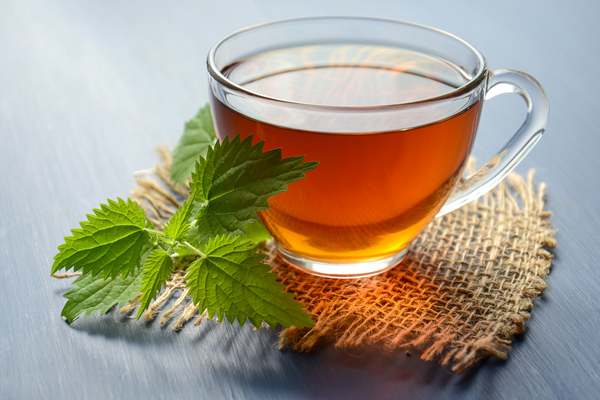
Gallstone attacks can happen if a gallstone is lodged in the neck of the gallbladder or gets stuck in the bile duct. This triggers a sudden and rapidly intensifying pain in the centre of your stomach, and if you’ve experienced a gallstone attack before, you know how bad they can be. Although some risk factors, such as age and genetics, are out of your control, there are diet and lifestyle changes you can make to prevent your risk of gallstones and associated attacks. Regular exercise and healthy eating are two of the best ways to keep your gallbladder healthy. Take a look at our best tips!
What is a Gallstone?
Gallstones are hard, pebble-like deposits of concentrated bile materials that develop in your gallbladder. Your gallbladder is a small organ located in your upper right abdomen, right below your liver. It holds a digestive fluid called bile that’s released into your small intestine. Gallstones can range in size from as small as a grain of sand to as large as a golf ball. In most cases, gallstones don’t cause any symptoms and do not need to be treated, however, if gallstones block your bile ducts, they can cause sudden pain, which signals you need to get medical attention right away.
What Causes Gallstone Attacks?
Gallstones can form if bile contains too much cholesterol, too much bilirubin, or not enough bile salts. Approximately 75% of gallstones are made up of excess cholesterol. Gallstones may also form if the gallbladder does not empty completely or often enough. You may be at a higher risk for gallstone attacks if you are obese or have diabetes. Gallstones are more common in people over 40 and more likely to occur in women than in men. If gallbladder attack symptoms last more than two hours or are accompanied by a fever or jaundice, you should go to the hospital for emergency care.
What Are the Symptoms of a Gallstone Attack?
- Sudden and rapidly intensifying pain in the upper right portion of your abdomen
- Sudden and rapidly intensifying pain in the centre of your abdomen, just below your breast bone
- Back pain between your shoulder blades
- Pain in your right shoulder
- Nausea and vomiting
- Fever or chills
- Yellowing of skin or whites of eyes
- Brown-ish coloured urine
- Light-coloured stool
5 Tips to Prevent Gallstone Attacks
1. Reduce Fatty Food Intake
Gallstones are more likely to form if there’s an overabundance of cholesterol in the bile. One of the best ways to prevent an accumulation of gallstones is to reduce your fatty food intake. This includes fatty cuts of meat, butter, cheese, heavy cream, fried foods, processed meats, and cakes and pastries.
2. Focus on Fibre
Eat foods that are high in fibre, such as whole grains, vegetables and fruits. A diet with less fat and more insoluble fibre can prevent gallstones and improve your health. High fibre, nutrient rich foods can improve gallbladder function and prevent complications.
3. Regular Exercise
Regular physical activity can reduce the chances of developing gallstones. Both vigorous and non-vigorous exercise have been associated with a reduced risk of gallbladder disease. The recommended amount of physical activity is 150 minutes per week or 30 minutes 5 times a week to boost your health and prevent weight gain.
4. Stick to Healthy Fats
Not all fat is bad, and healthy fats are actually beneficial in preventing gallstone problems and disease. Mono- and polyunsaturated fats are found in vegetable oils like olive, sunflower and canola, and omega-3 fatty acids are found in foods like avocados, fish and flaxseeds. You should be eating healthy fats at every meal.
5. Avoid Sugar and Carbs
Carbs like white bread, white pasta and refined sugars can contribute to a higher risk in gallbladder disease. In fact, one study found that eating 40 grams or more of sugar per day can double the risk of gallstones with symptoms. Stay away from sweets and stick to low-sugar food alternatives when possible.
5 Tips to Manage Gallstone Attack Pain
1. Heated Compress
A heated compress can help relieve spasms and relieve pressure from bile build up. Applying heat can be super soothing. Wet a towel with warm water and apply it to the affected area for 10 to 15 minutes. You can also use a heating pad or hot water bottle. Be careful not to place the hot surface directly on your skin.
2. Drink Peppermint Tea
Peppermint contains menthol, a soothing compound that helps relieve pain and discomfort. It can be used to ease stomach pain, improve digestion and can help manage gallstone attack pain. Try drinking peppermint tea when you feel pain coming on.
3. Magnesium
A magnesium deficiency is common among people who suffer with gallbladder pain. Magnesium can be helpful for gallbladder emptying and can ease gallbladder spasms and pain. Mix a teaspoon of magnesium powder in warm water and drink every few hours.
4. Apple Cider Vinegar
Sipping on diluted apple cider vinegar during a gallbladder attack can help reduce pain due to its anti-inflammatory properties. Mix 2 tablespoons of apple cider vinegar into one mug of warm water and sip slowly during a gallbladder attack.
5. Turmeric
Turmeric has been found to be helpful for many health conditions. It contains curcumin, which is known for its anti-inflammatory and healing benefits. It stimulates the gallbladder to produce bile and helps the gallbladder empty itself. You can incorporate turmeric into your diet to reduce inflammation and gallbladder pain. You can also stir turmeric powder into warm water to make a tea to help with pain relief.
If you notice any sort of gallbladder pain you should speak to your doctor to discuss your options and talk about expectations. These tips to manage gallstone pain can help, but you may need to seek out traditional medical treatments depending on your individual situation.
